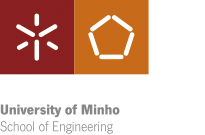Description
The main goal of the doctoral programme is to provide a high level specialized advanced training in order to develop in the doctoral candidates the ability to contribute to the advancement of knowledge in the field of sustainable built environment, through creative and autonomous investigation.
The doctoral candidates should achieve the following outcomes:
- High quality knowledge in the area of their individual research topic;
- Interpersonal/teamwork, self-management and professional development skills in a sustainable built environment context;
- Academic values: inquiry, critical reflection, integrity, open mindedness, evidence-based thinking, collegiality;
- Take responsibility for self-managed learning and personal/professional development;
- Integrate fundamental research with applied perspectives;
- Integrate multiple stakeholder perspectives in the transformation of a problem to a research question;
- Ability to plan and implement investigation interdisciplinary projects;
- Capability to apply, produce and evaluate scientific knowledge/information in the sustainable built environment;
- Proactive attitude with respect to changes and improvements in the framework of economic development and international competitiveness;
The International Doctorate in Sustainable Built Environment is structured in 3-years period, awarding 180 ECTS. The first year is the probation period, consisting of a coursework part of 4 courses - and the project of the Thesis. After obtaining approval in this Probation Period and after the approval of the Personal Study Plan by the Scientific Committee, students are allowed to start the Thesis. In order to be able to start the second year of the doctoral programme the doctoral candidates need to get approval in the 60 ECTS of the probation period. The second year
consists in the continuation of the coursework part of 2 courses and the start of the Dissertation. The third year consists in the continuation of the development of the Dissertation work and respective conclusion.
Key learning outcomes
The following objectives should be achieved:
- Provide European and third country higher education institutions with high qualified experts on sustainable
building and improve European research in sustainable building;
- Provide the doctoral candidates with a holistic vision of sustainable construction that goes beyond the classical
practice of building construction, developing an integrated approach for the construction sector that includes environment preservation, energy and materials performance (0-energy and 0-emission goals), safety, functional performance (comfort and use) and cost optimisation.
Access to higher education
The conclusion of this PhD course allows the accomplishment of research activity at postdoctoral level.
Careers
Potential employability in companies / institutions that are dedicated to the planet's environmental needs, taking into account the objectives of the European Union, which increasingly incorporates in its policies measures that meet the requirements of sustainable construction, this type of construction is an added value which construction companies have to submit.

